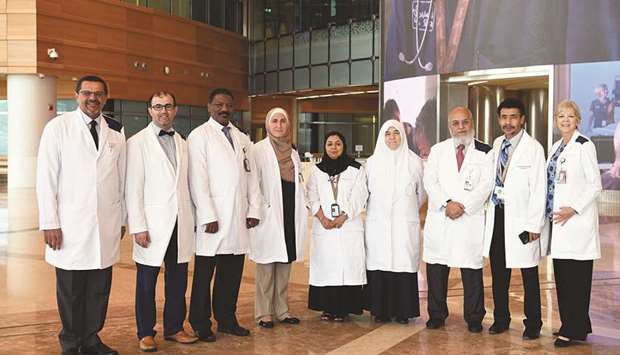Sidra Medicine has launched new paediatric neurology sub-specialty services, installed state-of-the-art technologies and embarked on a clinical research study to understand and advance the care and treatment of children with epilepsy.
The Paediatric Neurology Division at Sidra Medicine has set up a neurodiagnostic laboratory that offers outpatient electroencephalography (EEG) and ambulatory home EEG services to measure brain activity and evaluate children with suspected or confirmed epilepsy.
A dedicated inpatient paediatric Epilepsy Monitoring Unit (EMU) has also been installed. The EMU, a one-of-a-kind in the region and a first for Qatar, offers 24/7 simultaneous video EEG monitoring and has already helped in accurately diagnosing dozens of children.
The Neurology Division has also launched new sub-specialty paediatric clinics including the Tuberous Sclerosis clinic, Headache clinic, Complex Epilepsy clinic, Ketogenic Diet clinic and Spasticity clinic. The clinics explore all possible treatment options, beginning with conservative, non-invasive methods before considering neurosurgical
procedures.
Dr Khaled Zamel, chief of Paediatric Neurology Division at Sidra Medicine said, “The world-class neurology staff and state-of-the-art technology assembled at Sidra Medicine has allowed us to care for patients in a more integrated manner. We have had many children whose lives have been transformed because of our application of patient and family focused neurology care initiatives. For example, thanks to the ambulatory EEG service, several of our young patients can be monitored at home while being assured the same level of treatment and care without the need to be in the
hospital.”
There have been a number of patient success cases at Sidra Medicine since the launch of the EMU and EEG services including Mohamed: 11-year-old boy who used to display recurrent episodes of unexplained abnormal behaviour that affected his social functions including his performance at school. He was admitted to the Sidra Medicine EMU where his episodes where monitored and recorded. This observation helped identify that Mohamed was in fact suffering from epileptic seizures. He was immediately prescribed anti-epileptic medications and has made a full recovery of his symptoms.
Abdulrahman: a nine-year-old boy, had a history of frequent unexplained episodes especially when he was sleeping. Electrodes were placed on his head and an ambulatory EEG device was attached which allowed his brain activity to be recorded for three consecutive days while he was at home. This evaluation confirmed that the episodes he was having were indeed seizures. He was prescribed a new medication which has helped control his condition.
Patient K: 13-year-old girl with frequent unusual episodes that occurred on a daily basis. After being admitted to Sidra Medicine, she was started on a treatment programme that led to complete control of her episodes. More interestingly, genetic testing at Sidra Medicine revealed a rare mutation that explained her condition, as well as her family history of the disease.
According to a 2017 World Health Organisation consensus, epilepsy is one of the most common neurologic entities with a worldwide prevalence of four to 10 per 1,000. While there is a high prevalence of childhood epilepsy in the Arab region, there are currently limited accurate sources of information about the condition. This lack of data can lead to misdiagnosis, which carries with it stigma, social marginalisation, lifestyle limitations as well as potential side effects of inaccurately prescribed
medications.
In addition to the clinical services currently provided, the Paediatric Neurology Division is currently undertaking research that will further understanding of the landscape of childhood epilepsy in Qatar and enable a personalised approach to treatment of the chronic illness.
Dr Ruba Benini, attending physician and the principal investigator on this research study, stated, “Our specialised paediatric neurology team at Sidra Medicine has been collecting data from different sources including the EMU and neuro-diagnostic lab to get a more accurate picture of childhood epilepsy here in Qatar. This research data will be valuable in helping us get a proper understanding of the causes and severity of the disease including the influence of genetic factors. This will be essential in improving not only the personalised treatment of the condition for young patients in Qatar but also in the rest of the Arab world.”

Sidra Medicine’s Paediatric Neurology Department Leads.
